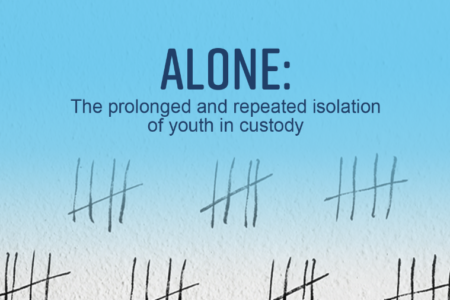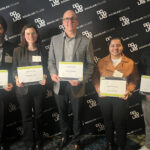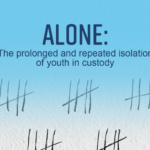Acting on Your Values
“Our efforts to change ourselves and to change the environment are both necessary, but one can’t happen without the other.” – Thich Nhat Hanh
Behaviours, beliefs, and values are the tools for making good choices, especially when you’re trying to change the world.
Participants in the fifth Nelson Interfaith Climate Action Collaborative learned the power of choice firsthand.
The monthly climate vigil and spiritual practice met on October 22 at the Yasodhara Ashram in Kootenay Bay for a community tour and evening spiritual gathering called a satsang.
The Ashram’s journey to environmental stewardship began in the 1970s from a simple 3-Rs – Reduce, Reuse, and Recycle – program. It evolved to a commitment in 2007 to be carbon neutral by 2013, the Ashram’s 50th anniversary.
Situated on 115 acres of forestland, lakefront, organic gardens and orchards, the Yasodhara Ashram has 22 buildings and achieved carbon neutrality in 2012 – a year earlier than anticipated. The year-round population averages 50 to 55 people, with seasonal peaks of 100 to 110.
“The first challenge is changing people’s behaviour,” Swami Sivananda (also known as Don) told about 30 visitors on a tour of the Ashram’s impressive sustainability efforts.
“Human behaviour is the key to sustainability,” he added.
Don explained that in 2008, the Ashram started to inventory greenhouse gas (GHG) emissions in all areas of its operations – from the ordering of kitchen, housekeeping and office supplies to the consumption of electricity, propane, gas and diesel fuels.
He said the Ashram used David Suzuki Foundation’s “Doing Business in A New Climate” as a template for action.
Over the following 4 years, using international protocols for GHG accounting, a successive set of reduction strategies was developed and implemented. This included a shift in local food sourcing and menu planning and converting Mandala House (the main services building) from a waste-oil furnace to an integrated geothermal/solar heating and domestic hot water system.
A number of ground-source heat pumps work in conjunction with the geothermal/solar hot water system giving back three units of energy of each one unit put in. Don enthuses that the system will pay for itself in 10 years through reduced energy costs.
Today, the Ashram serves 55,000 meals a year and 25 percent of the food comes from the Ashram’s own gardens and orchards. A further 25 percent comes from a network of 26 Kootenay Lake area farmers and growers, while an additional 20 percent is sourced from other parts of B.C.
“Put your heart, mind, and soul into even your smallest acts. This is the secret of success.” – Swami Sivananda Saraswati
When it came to retrofitting the centre’s buildings, Don said the Ashram followed the dictum: “What do I do with what I’ve got”, not tearing down but improving what existed.
“We made the buildings as tight as possible then upgraded the hardware.”
A former barn was turned into guest and resident accommodation incorporating geothermal heat and cooling, solar light tubes, low flush toilets and bamboo flooring. A former chicken coop was revitalized as a three-bedroom residence.
“We thought about how to best renovate and be environmentally responsible,” he said, adding that many innovations were first tried out on a small scale to prove their worthiness.
To avoid pipe with polyvinyl chloride, more expensive pipe was purchased from Germany to contain water in the geothermal/solar heating system.
“It was a trade-off we were willing to make,” said Don.
The Ashram’s 5-year carbon neutral program has led to a 94 percent reduction in direct emissions.
A new 7-year renewable energy program, maturing in 2020, will incrementally retire most of the 6 percent balance. In the meantime, the outstanding emissions are being handled through the purchase of carbon offsets.
“Moral values, and a culture and a religion, maintaining these values are far better than laws and regulations.” – Swami Sivananda Saraswati
The Ashram investigated its transportation impact early on and by adjusting the fleet of vehicles, reassessing needs and use patterns then shifting to more fuel-efficient models it was able to achieve a 50 percent reduction in fuel consumption over the five-year program.
Currently the Ashram has begun an experiment with electricity generated from solar photovoltaic panels.
The panels will provide some of the electricity for the new Temple of Light which will replace the temple which burned in June 2014.
The unique lotus petal design of the new temple – designed by Patkau Architects of Vancouver – required some cutting edge construction techniques which could only be done by three firms in the world, one in Germany, one in Calgary, and one on Nelson’s North Shore.
Spearhead Inc. has the specialty software to make the computer numerically controlled cuts to fashion the eight curved petal roof shapes and it is located only 25 km from the Ashram. Assembly of the temple building components is expected to start in early November.
An air source heat pump will provide warmth for the new temple.
“By recognizing the inter-connectedness of all life, we can move beyond the idea that we are separate selves and expand our compassion and love in such a way that we take action to protect the Earth.” – Thich Nhat Hanh
Yasodhara Ashram was founded in 1963 by Swami Sivananda Radha and is one of the longest running spiritual centres in North America offering courses and retreats.
It has been recognized by FortisBC’s 2008 PowerSense Conservation Award and by Tourism British Columbia with its prestigious Environmentally Responsible Tourism Award in 2009. Reader’s Digest named the Ashram as Canada’s best yoga retreat.
The next climate vigil and spiritual practice will be held at St. Saviours Pro-Cathedral, 701 Ward Street in Nelson on November 22. Everyone is welcome to attend.
Previous gatherings by the Nelson Interfaith Climate Action Collaborative – an initiative of the West Kootenay EcoSociety – have been held at Ascension Lutheran Church, Kootenay Shambhala Meditation Centre, Nelson United Church and the Nelson Unitarian Spiritual Centre.
“It’s not hard to make decisions when you know what your values are.” – Roy Disney, American film writer
During the satsang at the Ashram, Rebecca echoed Don’s earlier comments about changing people’s behaviours.
“It is important that we all align our actions with our values,” she told an audience of about 70 people.
Near the end of the satsang, each attendee was invited to take a lit candle and place it on an altar in the room while at the same time saying their own silent prayer for a solution to climate change.
A small gesture, but a reminder that what each of us does makes a difference.
Michael Jessen is an eco-writer and sustainability consultant living at Longbeach near Balfour, BC. His business Zero Waste Solutions helps individuals, businesses and communities make sustainable choices in day-to-day management and utilization of resources. Learn more at www.zerowaste.ca or www.michaeljessen.ca.
Michael can be reached by email at zerowaste@shaw.ca























